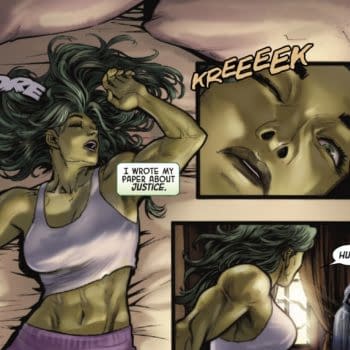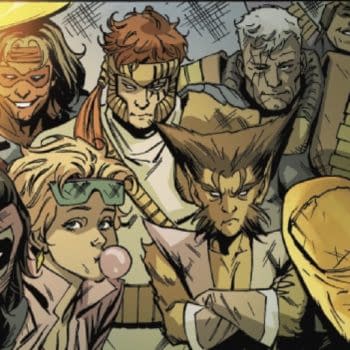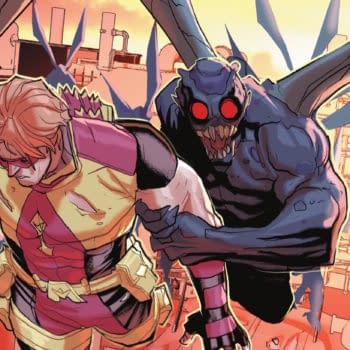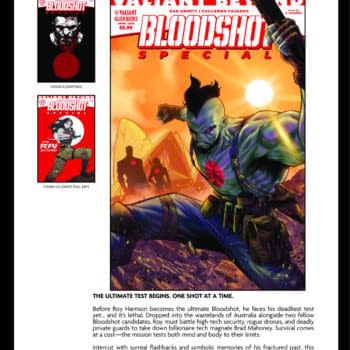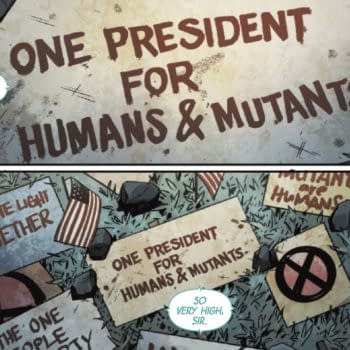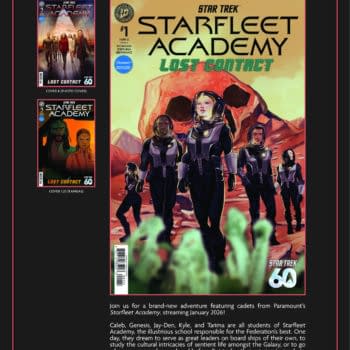Posted in: Comics, Recent Updates | Tagged:
Why Kurt Busiek Is Wrong About Jonathan Hickman's Fantastic Four
There was a line from Paul O'Brien's X-Men Azazel review that sticks. "If you like this comic, you are objectively wrong. I can prove it with graphs." Well, we want to do the opposite.
In his leaked treatise on the current comic book industry, Kurt Busiek wrote
There are writers out there who are supposed to be terrific — Jonathan
Hickman gets raves, but I read his first volume of FANTASTIC FOUR, and it
felt like two issues' worth of story crammed into a six-issue bag, without
much context.
And that's just been nagging at me. But it was blogger Bell who wrote it down, looking at all the different plots that Hickman has spinning in the series;
- A Council of Reed Richards' from multiple universes striving together to Solve Everything.
- An army of mentally neutered Doctor Dooms lurking underneath the auspices of said Council (surely that can't go well?)
- The advanced passage of time taking place on back-up Earth "Nu-World" and the fates of the New Defenders that live there.
- Future versions of Reed and Sue's children Valeria and Franklin meddling with their past to better their future, working alongside their grandfather, a time-displaced Nathaniel Richards.
- Ben Grimm idolized by Moloid children he rescued from the City of the High Evolutionary, which has now reached the surface of Earth.
- Susan Richards is Earth's envoy to the tribe of Old Atlaneans, who have similarly brought their city above Earth's crust.
- Johnny Storm unwittingly allowing Annihulus to take control of the expanded N-Zone prison city.
- A tribe of Inhumans from other parts of the Universe settling on the moon with the intention of bringing their city ship to Earth.
- Reed Richards forming a think-tank with the genius young minds of the Marvel Universe – their first goal? Curing Ben Grimm of his rock-like Thing state (this could be phrased better).
Basically dense plotting deriving from character desires, intertwining and affecting each other. It's an intense superhero book, Busiek also wrote;
And I picked up the first issue of another series he did, and it confused the hell out of me, until I discovered that it brought together threads and mysteries from three other series without any explanation, simply assuming the reader was following other series, at which point I just stopped caring. I don't want to have to read other series to know what's going on, and I really don't want to have to do it without a scorecard.
I'm not sure which series that could have been. Secret Warriors? Shield? Neither of which had information I felt expected to get elsewhere – apart from in forthcoming issues of the comic book in question. Considering Hickman's initial sixty issue plan for the book looks like this…
He's not intending to miss a trick. And as for Shield, he's presenting large mysteries but nothing that seems dependent on anything else, save for the rich tapestry of the Marvel Universe being rewoven.
Hickman burst onto the comics scene with Nightly News which in a stroke gave comic book creators a whole new box of tricks to play with, his equivalent of An Anatomy Lesson, and we've seen that influence most recently on Matt Fraction's Invincible Iron Man.
Two issues in a six issue bag? More like twenty. But they are books that demand work from the reader as well as the author. That's not always a bad thing – in the case of Hickman's work it can be as rewarding as all hell.
If you do not like his comics, you are wrong. We can prove it with his graphs.







